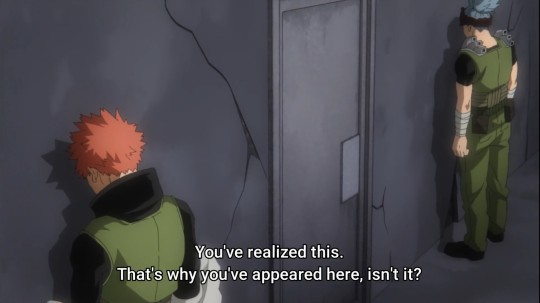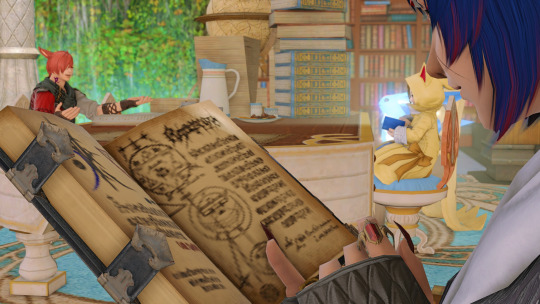#Transfer of Property
Explore tagged Tumblr posts
Text
Mastering Real Estate Security: The Transfer of Property Act as Your Key to Safe Transactions
The Transfer of Property Act (TPA), 1882, is the cornerstone of secure and legally sound real estate transactions in India. Whether you are a homebuyer, an investor, or a developer, understanding this law is crucial to safeguarding your property dealings from fraud, disputes, and legal complications.

In today’s dynamic real estate market, the risk of legal entanglements is high. Buyers must ensure they acquire a legally clear property, while sellers must confirm the rightful transfer of ownership. The Transfer of Property Act provides a structured legal framework to govern the exchange of immovable assets, preventing malpractices and ensuring financial security.
Why Is the Transfer of Property Act a Game-Changer for Real Estate?
The Transfer of Property Act is designed to: ✔ Prevent Fraudulent Transactions – By defining valid property transfers and enforcing registration, the Act reduces risks of illegal ownership claims. ✔ Ensure Legal Clarity – It clearly categorizes different types of property transfers, such as sale, mortgage, lease, exchange, and gifts. ✔ Protect Buyer & Seller Rights – Both parties in a transaction get well-defined rights and liabilities, preventing future disputes. ✔ Regulate Immovable Property Deals – From personal home purchases to large-scale commercial investments, TPA secures transactions at every level. ✔ Ensure Financial Security – Investors and financial institutions rely on this law to validate ownership before lending or funding real estate deals.
Understanding the Core Provisions of the Transfer of Property Act
The TPA governs how property is transferred between two parties and ensures legal enforceability. Below are some of the critical aspects covered under the Act:
1. Types of Property Transfers Defined in the Act
Sale (Section 54-57): A complete transfer of ownership in exchange for a monetary consideration.
Mortgage (Section 58-104): Property is pledged as security for a loan, with various types of mortgages outlined.
Lease (Section 105-117): A temporary transfer of possession for a fixed duration in exchange for rent.
Gift (Section 122-129): A voluntary, irrevocable transfer of property without any monetary consideration.
Exchange (Section 118-121): Mutual transfer of ownership between two parties without monetary transactions.
2. Essential Legal Conditions for a Valid Property Transfer
For any transaction to be legally valid under the TPA, it must meet these key conditions: ✅ The transferor must be legally competent (i.e., an adult of sound mind). ✅ The property must be transferable under law (e.g., ancestral, government, or restricted properties may have limitations). ✅ The transfer must follow the prescribed legal process, including registration when necessary. ✅ The transaction should be free from coercion, fraud, or misrepresentation to be legally enforceable.
3. How the Act Prevents Legal Disputes & Fraudulent Transactions
Many property disputes arise due to unclear ownership, fraudulent sales, or defective titles. The TPA mandates a clear chain of ownership, written agreements, and legal documentation to prevent such complications. It also specifies:
The need for registered sale deeds for transactions above a certain value.
Protection for bona fide buyers who purchase property without knowledge of hidden legal defects.
Legal consequences for fraudulent transfers, ensuring that wrongful owners cannot claim title to a property illegally acquired.
The Transfer of Property Act & Real Estate Investments: Why It Matters
For homebuyers, the TPA ensures that the property purchased has a clear title, preventing post-purchase legal challenges. It also helps in verifying if the property is free from encumbrances like mortgages or disputes.
For investors and developers, the law provides a transparent legal structure for ownership transfers, lease agreements, and project financing. Ensuring compliance with the TPA builds investor confidence and enhances the credibility of large-scale real estate projects.
Banks and financial institutions also rely on TPA compliance before approving home loans or project funding. Properties that do not adhere to legal transfer rules may face restrictions on financing, limiting their market potential.
How to Ensure Your Real Estate Transaction is Legally Secure
✔ Verify Title & Ownership – Always check property records, title deeds, and previous ownership history before purchasing. ✔ Ensure Proper Documentation – Draft legally compliant agreements, including sale deeds, lease deeds, and mortgage papers. ✔ Confirm Legal & Financial Clearances – Check for outstanding loans, property taxes, and encumbrance certificates before finalizing a deal. ✔ Register Property Transfers – As per the Registration Act, 1908, high-value property transactions must be officially recorded to be legally binding. ✔ Consult Legal Experts – Engaging a real estate lawyer ensures your transactions comply with all legal provisions under the TPA.
Conclusion: Empower Your Real Estate Journey with Legal Awareness
The Transfer of Property Act, 1882, is more than just a legal guideline—it is a powerful tool that safeguards your real estate transactions. Whether you're a first-time homebuyer, a seasoned investor, or a developer, understanding and adhering to the provisions of the TPA ensures smooth, risk-free property deals.
By securing your real estate investments with legal awareness and due diligence, you can confidently navigate the property market and build a financially sound portfolio. In an era of increasing real estate fraud, knowing your legal rights under the TPA is your best defense against costly disputes and ownership conflicts.
For expert assistance in real estate transactions, always consult legal professionals to ensure compliance with the Transfer of Property Act—because when it comes to property, legal security is the ultimate peace of mind!
#Transfer of Property#Property Law#Real Estate Law#Immovable Property#Movable Property#Actionable Claim#Living Person#Transferor#Transferee#Competence to Transfer#Transferable Property#Mode of Transfer#Consideration#Notice#Lis Pendens#Fraudulent Transfer#Doctrine of Notice#Specific Performance
0 notes
Text
#will writing services#vaseeyatnama#transfer of property#writing#will drafting services#assets recovery
0 notes
Text
A Complete Guide To Transfer Of Property!

Buying a house or property is a milestone for everyone, but dealing with the further property transfer process is a snowed-process. However, the transfer of property is a crucial topic for every individual's financial portfolio. This topic entitles a spider web of procedures, whether it is for future planning, giving, or taking care of legal matters.
The transfer of property generally occurs when buying or selling of property is involved. Depending on the jurisdiction, it may differ. However, certain fundamental legal procedures remain the same in this process.
This blog here will examine the legal issues of property transfers, including the available options, applicable limitations, and important factors to take into account.
What Is Transfer Of Property?
Transferring of ownership of property from one person or entity to another is sometimes referred to as "transferring property." The transfer may take place through several channels, including gifting, selling, relinquishment, or inheritance. The procedure differs depending on the type of transfer and the type of property, and there are legal restrictions on your capacity to transfer all of your property.
What Is Transfer Of Ownership Of Property?
Transfer of ownership of property involves the legal act of transferring all rights, interests, and title of a property from the seller to the buyer. This process is governed by specific legal requirements and procedures.
What Are The Different Modes Of Property Transfer?
Property transfer can occur through various modes, each with its legal implications and requirements.
Sale: Sale is the most common mode of property transfer, where ownership rights are transferred from the seller to the buyer in exchange for a price. The sale deed is executed, and the property is registered in the buyer's name after payment of stamp duty and registration fees.
Gift: Property can be transferred as a gift without any consideration. The donor must voluntarily transfer the property and the recipient must accept it. The gift deed is executed, and the property is transferred to the recipient's name. Gift transactions are subject to certain conditions and tax implications.
Exchange: Property can be transferred through an exchange where two parties mutually agree to exchange their properties. Both properties must be of equal value, and an exchange deed must be executed to formalize the transaction.
Relinquishment: Relinquishment occurs when a co-owner voluntarily gives up his share in the property in favor of other co-owners. A relinquishment deed is executed, and the relinquishing co-owner's share is transferred to the other co-owners.
Partition: Partition is the division of jointly owned property among co-owners. Each co-owner receives a share of the property according to his ownership rights. A partition deed is executed to formalize the division of the property.
Will: Property can be transferred through a will, where the owner (testator) specifies the beneficiaries who will inherit the property after his death. The will must be executed as per the provisions of the Indian Succession Act, and the property is transferred to the beneficiaries after the testator's death.
Transmission: Transmission of property occurs when the owner dies intestate (without a will), and the property is transferred to his legal heirs as per the laws of succession. The legal heirs inherit the property by the personal laws applicable to them.
Court Decree: Property can be transferred by a court decree in cases where there is a dispute regarding ownership or possession of the property. The court decides the ownership rights and orders the transfer of the property to the rightful owner.
Settlement and division: When co-owners decide to divide their shares equally, they can transfer property through a settlement or division.
What Legal Considerations Are Needed For Property Transfer?
Transfer of property involves several legal considerations that must be addressed to ensure a smooth and legally compliant transaction.
Here are the key legal considerations that need to be taken into account:
Clear Title: It is essential to verify that the property has a clear title, free from any encumbrances or legal disputes. A thorough title search should be conducted to ensure there are no existing claims or liabilities on the property.
Legal Capacity: Both the transferor (seller) and transferee (buyer) must have the legal capacity to enter into a property transfer transaction. Minors, persons of unsound mind, or those disqualified by law cannot legally transfer property.
Compliance with Laws: Property transfer must comply with all relevant laws and regulations, including local land laws, zoning regulations, and environmental laws. Failure to comply with these laws can result in legal complications.
Valid Transfer Deed: A valid transfer deed, such as a sale deed, gift deed, or exchange deed, must be executed to transfer ownership rights from the seller to the buyer. The deed must be executed as per the requirements of the Registration Act, of 1908.
Stamp Duty and Registration: Stamp duty must be paid on the transfer deed as per the rates prescribed by the state government. The deed must also be registered with the Sub-Registrar of Assurances to make it legally valid and enforceable.
Payment of Taxes: Any applicable taxes, such as capital gains tax, stamp duty, and property tax, must be paid before the property transfer is completed. Failure to pay these taxes can result in penalties and legal consequences.
No Objection Certificates (NOCs): NOCs may be required from various authorities, such as the local municipal corporation, society, or development authority, to ensure there are no objections to the property transfer.
Possession and Delivery: The seller must deliver possession of the property to the buyer as per the terms of the transfer deed. The buyer should also take physical possession of the property after completing the transfer formalities.
Legal Documentation: All legal documents related to the property, such as title deeds, building approvals, and property tax receipts, must be verified and in order before completing the transfer.
Legal Heirs and Succession Law: In cases where the property is being transferred due to inheritance, it is important to ensure that all legal heirs are identified and their consent is obtained. The transfer must comply with the relevant succession laws applicable to the property.
Gift Tax and Income Tax Implications: Property transfer as a gift may attract gift tax implications, and the recipient may also be liable for income tax on the gift received. It is important to understand and comply with the tax implications of property transfer.
Legal Assistance: It is advisable to seek legal assistance from a qualified property lawyer to ensure that all legal considerations are addressed and the property transfer is conducted smoothly and legally.
Is It Possible to Transfer All Your Property in real time?
The feasibility of transferring all your property hinges on several factors, encompassing legal, financial, and familial considerations. Here are several scenarios where transferring all your property might be a viable option:
Planning Of Estate: Many individuals contemplate transferring their property as a component of estate planning, ensuring a seamless transition of assets to the next generation. This process may involve creating a will or establishing a trust.
Planning Of Retirement: Some individuals opt to transfer their property as part of retirement planning, either through gifting assets to family members or selling assets to generate income for retirement.
Planning Of Finances: Property transfer could be a strategic component of broader financial planning, especially concerning asset liquidity and optimizing the overall financial portfolio.
Family Settlements: Transferring property could be a result of family settlements or partitions, particularly when co-owners decide to redistribute their shares for equitable distribution.
Avoiding Legal Complications: Property owners might choose to transfer their property to alleviate potential legal complications or disputes, especially if concerns exist regarding succession issues or property-related conflicts.
Legal Frameworks of Property Transfer In India-
Property transfer in India is governed by various laws and legal frameworks that outline the procedures and requirements for transferring property ownership. These acts are primarily derived from other countries' property transfer acts.
Some of the key acts and legal frameworks related to property transfer in India are:
Transfer of Property Act, 1882: This act governs the transfer of property by various modes such as sale, mortgage, lease, and gift. It defines the legal requirements for a valid property transfer and outlines the rights and liabilities of the parties involved.
Registration Act, 1908: This act mandates the registration of certain documents, including property transfer deeds, with the local Sub-Registrar of Assurances. Registration of property documents provides legal sanctity to the transaction and protects the interests of the parties involved.
Indian Succession Act, 1925: This act deals with the transfer of property upon death and governs the rules of inheritance and succession. It outlines the legal procedures for making a will and the distribution of property among legal heirs in case of intestate succession.
Income Tax Act, 1961: Property transfers, especially those involving gifts or inheritance, may have tax implications under the Income Tax Act. Capital gains tax may be applicable on the transfer of property depending on the nature of the transaction and the holding period of the property.
Real Estate (Regulation and Development) Act, 2016 (RERA): RERA aims to regulate the real estate sector and protect the interests of homebuyers. It mandates the registration of real estate projects and real estate agents and provides a mechanism for the redressal of grievances related to property transactions.
What Are The Legal Restrictions Involved?
There are several legal restrictions involved in the transfer of ownership of property, including:
The property must not be under litigation.
The property must not be subject to any encumbrances.
The property must not be part of a prohibited transaction under the law.
Conclusion
Property transfer is a complex process that requires careful consideration of legal requirements and procedures. By understanding the basics of transfer of ownership of property and seeking professional advice, you can ensure a seamless and legally compliant transaction.
For expert guidance and assistance in property transfer and estate planning, contact WillJini. With years of experience and a team of expert lawyers, WillJini can help you navigate the complexities of property transfer with ease.
0 notes
Text




old drawings i found while going thru my computer
#genuinely cant tell u when these r from#just from memory#ok these range from october of 2023 to march of 2024#i had to look at the properties lmao#the duke and damian jacket one was supposed to be like? a set piece?#i wanted to draw the batkids in jackets i have#so i gave damian my jean jacket and duke that one#jason was gonna get a leather jacket and tim i think a sweater#and those were the only i had planned out#im gonna transfer some of these to my ipad so i could clean some up. before dropping the rest#bc why did i let these go unfinished#tim drake#robin#stephanie brown#steph brown#cassandra cain#cass cain#batgirl#spoiler#duke thomas#damian wayne#the signal#batfamily#only minorly edited to add my username#ash's doodlings
2K notes
·
View notes
Text
Bruce is actually really attractive, and I have enough reasoning to make a list
He's:
Tall (. Tall enough to hit his head on the vault doorframe)
Long-legged



Has a straight nose bridge
Has high cheekbones (more noticeable in 2nd pic below)
Has a strong jawline


Sharp eyes, but they aren't small (plus eyebags if you're into that)
Overall, he has strong, attractive facial features
Has broad, refined shoulders. You can tell he works out (or he did, when he was alive)
Even has a thick, muscly neck

He has MUSCLE. Is SCULPTED. NOICE. VERY NOICE. (nice arms. Nice shoulders. Nice neck. Nice legs. Nice butt-)
(There are actually panels where you can see some of his muscles. Other than those already shown here, he's got bricky thighs-

-and in the panels where we first get his name dropped, he's got those shoulder blades too-)
The one time we see him smile, and he actually has a scary one

Has small, kinda sharp pupils, and his eyes remind me of a cat. We only ever saw him tense or defensive, so his resting/listening face is really cute

Other than the physical appearance stuff, he also:
Takes shit without batting an eye (patience, knowing it's just how Kudo is, etc)
Kudo being all "Cut the crap Bruce and give it to me straight", after Bruce tests his blood and is rightfully Concerned because they just faced AFO
Put up with Kudo's experimenting and testing over Yoichi's transferable Factor
Did ya'll see the look on Kudo's face when he realized he had Yoichi's Factor/will? Kudo was going to start in nonsense and Bruce just dealt with that.
Also something I noticed when looking back at the images here; Bruce has bandages on his arms in the void. But not when he faced AFO in the sewers.
Were he and Kudo cutting their arms open in their experimenting over Yoichi's theory? Is this why Kudo has two gauntlets instead of his one? Why we never see his bare arms in the void? That he always keeps his arms down so there's no slip?
Is smart enough to run blood tests, plus has enough common sense to pick Shinomori as his successor
He picked a guy who avoids society, has an Ability to detect danger so he can always stay away from AFO, is also a coward so he's never going to go throw himself into danger, even without knowing instinctively he stands no chance, etc.
Meanwhile, Kudo chose Bruce, who he played Hot Potato Yoichi with; but he did also trust Bruce, and put the only pure combative Ability in OFA through Bruce.
These two made their choices based on what they valued and saw the Factor needed.
Is logical, analytical, and calm.
He tried advising Midoriya on their Abilities in One For All, especially his own.
Midoriya then tried ignoring him about using Fa Jin for the first time, but found he was right, thinking: "Dammit!! I had [Lady Nagant] right where I wanted her, but... ugh! The Third was right. My parallel Quirk processes are all screwed up!" (ch. 314).
Plus, when Midoriya fixed his processing mistakes, Bruce was analyzing the way he reached his new conclusion. Pure facts, no bias, very calm, just saying it as it was.
We never see him panic. When he's caught by surprise in the sewers by AFO, Kudo, and Yoichi's little bubble event, he immediately reacts. He doesn't falter, he just knows he has to do something right now.
Was more willing to listen than Kudo to Yoichi's beckon, and probably was just following Kudo's rejection of Midoriya
While we don't see Kudo's face, we see Bruce's eyes when Yoichi calls on his heroes. Bruce was more open and receptive, or at least more impacted.

Bruce was also the one to start talking, while Kudo just kept quiet.
He actually communicates a lot
When Yoichi called them to support Midoriya, Bruce started talking to paint a picture of why they thought the way they did, so Yoichi understood where they were coming from.
(Though he seems to beat about the bush sometimes, since Kudo spoke up to be direct on how they couldn't just put their trust in some starry-eyed teenager. Plus, when Kudo tells him to just tell him what's wrong [double Factors])
When Midoriya first used Fa Jin against Nagant, Bruce came out just to tell him he knew what he was trying, but that Midoriya wasn't ready; and Midoriya found he was right. Midoriya just didn't want to listen to him then.
He asks Kudo for clarification after finding Kudo had two Factors in him after the sewer incident ("Just to be sure, All For One didn't touch you, right?") Kudo knew him well enough to go "stop beating around the bush and tell me", so Bruce was probably gonna start with questions, theories, and trying to understand everything in general, before saying "yeah you have two Factors. Don't know why".
Is strong-willed and loyal.
He followed Kudo, even to death, carrying on the cause he started until it ended with him.
Plus, when talking about how AFO needs a strong will to override OFA's own, we first see Bruce, Kudo, and Yoichi.
AFO couldn't steal OFA because the will was too strong for him, and that was back during Banjo's time. Since Shinomori never actually tried opposing AFO and just hid, we can assume the first Three (Yoichi, Kudo, Bruce) already had an accumulation of strong willpower that made OFA un-stealable. Those three are a strong enough foundation, and the main wills, that the other users just become bonuses.
Kudo, also saying that Midoriya needs allies with the same will and drive as him... hey Kudo, you're talking about yourself and your old allies, aren't you? That's why you look at Yoichi and Bruce when you say this.
Not only is Bruce attractive, but he's got good character. THE END.
#yes this is a bruce appreciation post#am i biased? yes. am i right that he has these features? also yes.#hes actually a very attractive person. hes got all the right features for it#plus hes smart (some medical knowledge) is really loyal strong-willed and patient#he puts up with kudo SO much#from being bossed around to taking home yoichis brother to whatever the heck kudo made him do to figure out OFA's transfer properties.....#i didnt think much of bruce originally#then i started doing resistance fic stuff and now hes a fave#hes a little blorbo#that i throw in terrible situations for my own entertainment#used his scary smile for comedy purposes#like when he made a kid cry once. or when a meta child was afraid of him so they bit him#has patience to deal with kudo and co. but also. has enough bite to snark them. is how i like writing him#oh? background character? well lemme just *picks him up* EXPAND ON THAT-#fic stuff: he tries making a good impression on a girl and kudo is ruining it immediately#he doesnt know what to do because the two always banter#kudo: fuck you#oc: fuck me yourself you coward#he sees through a rose-lens that kudo is trying to rip off his face#appeciation kinda turned analysis in general#bruce#kudo#yoichi shigaraki#bnha#mha#spoilers#boku no hero academia#my hero academia#NOT YOICHIS BROTHER. i meant Yoichi / AFO's brother in a prev tag up there but theres too much tags i dont wanna rewrite to fix that#(image limit and tag limit)
333 notes
·
View notes
Text
I think Chandelure's able to stay pretty under the radar most of the time but her ghostlyness/pokemon traits slip out way more when she's stressed or extremely emotional.
Usually the eye glow is (relatively) subtle, how Ingo usually looks in pla y'know, That sometimes looks golden yellow at the right angle. But if she's angry or smth they are like headlights.
Fire powers too, Chandelure's a very experienced pokemon anyway and the main effect of piloting Ingo's body is her abilities are harder to use but problems can still arise! Cornered by a pokemon? more squishy human body in danger? On instinct some power is right there to throw at the situation even if its not great for a human form. I like to imagine a little bit of the coat's edges are scorched (and she feels awful about it) after some dangerous encounters.
She runs really warm all the time and she can't turn that off but the pokemon and Akari seem to like taking advantage of that so sure! Hugs!
#pokemon#edam's aus#pla#subway boss ingo#fire and smoke au.#fire and smoke au#chandelure properties are fun to play with#does the hypnotic movement thing transfer? is Ingo good at dancing now?#submas
40 notes
·
View notes
Text

Starting out on observations/student teaching. This week's unit is on heat transfer and molecules. Drew Cuphead, with tea instead of milk, and how molecules move as a solid (ceramic), liquid (tea), and gas (steam). A good portion of students knew and shouted Cuphead when they came in.
#cuphead#dorid doodlez#whiteboard doodles#the cuphead show#cuphead don't deal with the devil#heat transfer#science#stem#steam#rubberhose style#rubberhose#properties of matter#renew the cuphead show#cuphead fanart#traditional art#cuphead show
14 notes
·
View notes
Text






MiqoMarch Day 27 - Comfort
Tucked away at the farthest end of The Andron was a room larger than the others. Primarily it was intended for storage but, given the circumstances, Krile thought the space would better serve as an apartment of sorts; comfortably shared between three of her dear friends.
Some extra shots of the build for fun!






#miqomarch#miqomarch 2024#ffxiv#g'raha tia#y'shtola rhul#wolgraha#wolshtola#y'shtola x wol#miqo'te#three cheers to krile for being literally the nicest friend#i tried my best to turn arsays apartment in mist into a pseudo old sharlayan type zone#basically arsay doesnt own any property in canon and has been setting up a room for herself in places shes been allowed to#ie the pendants at the crystarium and the rising stones#but since no one really goes to the rising stones its really lonely for arsay to go there at the end of the day#shes been crashing in the annex since endwalker anyways#and now that graha is working for the students pretty much permanently all the more reason to give them an actual living space#with enough room for yshtola too of course!!#and at the farthest point in the building so there's a modicum of privacy :)#i dont think kryle was expecting arsay to reno the place but Arsay had a lot of free time when she was recovering from ultima thul#a lot of it was stuff she transferred over from her room in the rising stones lol but theres new pieces from her endwalker adventures too#WOL posting#Arsay Nun
28 notes
·
View notes
Text

Steps to Legally Transfer Property to a Wife After Husband’s Demise: A Complete Guide
Losing a loved one is always difficult, and dealing with legal formalities in the aftermath can be overwhelming. One of the key concerns for a surviving spouse is the transfer of property after the husband's demise. In this comprehensive guide, we will explore the necessary steps to legally transfer property to a wife, preparations before property transfer, essential documents, and how to navigate the legal process.
Also Read: Wife's Property Rights After Husband's Death
Preparations Before Property Transfer
Before initiating the process of transferring property after a husband's demise, certain preparations are necessary to ensure the process goes smoothly. Proper preparation can prevent delays and avoid disputes among legal heirs.
Gather All Relevant Documents
Start by collecting all the relevant documents that will be needed during the transfer process. These include:
The husband’s death certificate.
The original property documents (sale deed, title deed, etc.).
Identification proofs of the wife and other legal heirs.
Marriage certificate to prove the wife’s relationship with the deceased.
Any existing will, if applicable.
Review Debts and Liabilities
Check if the property is free from encumbrances or loans. If the property is mortgaged, you may need to settle the outstanding loan or arrange for the loan to be transferred in the wife’s name.
Understand the Type of Property
Determine whether the property is self-acquired or ancestral, as different laws may apply. Also, check if the property is jointly owned, as this can simplify the transfer process.
Essential Documents for Property Transfer
To ensure a smooth property transfer, you will need to submit a set of important documents to the authorities. Here is a list of essential documents required for transferring property to the wife:
Death Certificate: A copy of the husband's death certificate issued by the local municipal authority.
Legal Heir Certificate: If there is no will, this certificate identifies the legal heirs of the deceased.
Succession Certificate: Required for movable assets like bank accounts and shares.
Will (if available): If the husband left a will, submit a copy along with the probate order.
Marriage Certificate: To establish the wife’s legal relationship with the deceased.
Property Ownership Documents: The title deed or sale deed of the property.
Identification Proofs: Aadhaar card, PAN card, or voter ID of the wife and other legal heirs.
Tips for Organizing Your Estate Affairs
Proper estate planning can help reduce confusion and ensure the smooth transfer of assets. Here are a few tips:
Create a Will: A well-drafted will can simplify the property transfer process for surviving family members.
Update Legal Documents: Regularly update ownership records, nominee details, and any outstanding loans.
Discuss with Family: Make sure your loved ones are aware of your property and estate arrangements.
Seek Legal Advice: Consult with a lawyer to ensure that your estate planning is legally sound.
The Legal Process of Property Transfer
The legal process of property transfer depends on whether the deceased left behind a will or not. Let's explore both scenarios.
If the Husband Left a Will:
File for Probate: Probate is the legal process through which a will is authenticated by the court. This process involves submitting the will to the district or high court, depending on the value of the property.
Executor Transfers Property: Once the probate is granted, the executor named in the will transfers the property to the wife.
Mutation of Property: The wife needs to apply for the mutation of property in her name by submitting the probate order and relevant documents to the local municipal authority.
If There Is No Will (Intestate Succession):
Obtain Legal Heir Certificate: The wife will need to apply for a Legal Heir Certificate to establish her legal right to the property.
Apply for Succession Certificate (for Movable Property): In cases involving movable assets, the wife must obtain a Succession Certificate from the court.
Mutate the Property: Once the legal heir certificate is obtained, the wife can apply for the mutation of the property in her name.
How to Initiate the Process of Transfer
To initiate the process of transferring property after the husband’s demise, follow these steps:
Get the Death Certificate: Obtain the husband’s death certificate from the local municipal authority.
File for Probate (if there is a will): Submit the will to the court to get it authenticated through probate.
Apply for Legal Heir Certificate: If there is no will, submit an application to the local revenue or civil court to obtain the Legal Heir Certificate.
Submit Necessary Documents for Mutation: Provide all required documents to the land revenue office or municipal authority to mutate the property in the wife’s name.
Probate and Its Role in Property Transfer
Probate is the judicial process of validating a will in court. It is required to ensure that the will is legally binding and that the executor can proceed with the transfer of property. Probate is necessary in some states, such as Maharashtra and West Bengal, even if the will is undisputed. The process involves:
Filing the will in court.
Verifying the will's authenticity.
Granting the executor the right to distribute the deceased's assets.
Factors Affecting Property Transfer
Several factors can affect the smooth transfer of property:
Existence of a Will: The presence of a valid will simplifies the process.
Legal Disputes: Disputes between legal heirs can delay the transfer.
Outstanding Loans: If the property has a mortgage, the loan must be settled before the transfer.
Debts and Liabilities Impacting Transfer
Before transferring property, it’s crucial to settle any outstanding debts or liabilities on the property, such as:
Home Loans or Mortgages: The wife must either repay the loan or transfer it to her name.
Unpaid Taxes: Property taxes or other dues must be cleared before the property can be transferred.
Joint Ownership and Rights of Survivorship
If the property was jointly owned by the husband and wife, the process of transfer is simpler. In such cases:
The wife becomes the sole owner of the property automatically upon the husband’s death, thanks to the right of survivorship.
The only legal requirement is to mutate the property records to reflect the change in ownership.
Step-by-Step Guide to Transfer Property
Here is a quick step-by-step guide to transferring property:
Obtain the death certificate.
Gather all property and legal documents.
File for probate (if necessary).
Apply for Legal Heir or Succession Certificate (if no will exists).
Submit documents for mutation to transfer property ownership.
How to File the Deceased’s Will
To file the deceased's will, follow these steps:
Locate the Will: Ensure that you have the original copy of the will.
Submit to Court for Probate: File an application with the local court to initiate the probate process.
Provide Executor Information: Include details about the executor named in the will.
Navigating Inheritance Laws and Regulations
India has different inheritance laws based on religion. Understanding these laws is crucial to determining how property is distributed:
Hindu Succession Act, 1956: Governs Hindus, Buddhists, Jains, and Sikhs.
Muslim Personal Law (Shariat): Governs Muslims.
Indian Succession Act, 1925: Applies to Christians, Parsis, and Jews.
Tax Implications and Considerations
When property is transferred, tax implications must be considered:
Inheritance Tax: India does not have an inheritance tax, but stamp duty and capital gains tax may apply.
Capital Gains Tax: If the wife decides to sell the inherited property, she may be liable for capital gains tax on the appreciation of the property value.
Understanding Estate Taxes and Exemptions
While India does not levy an estate tax, inheriting property may still involve taxes such as stamp duty and registration fees during the transfer process. These taxes vary depending on the state and property value.
Tips for Minimizing Tax Burden on Inherited Property
To minimize the tax burden on inherited property:
Consider holding onto the property for a longer period to reduce capital gains tax.
Explore exemptions under the Income Tax Act, such as Section 54, for reinvestment in another property.
Common Challenges and Solutions
a) Disputes Among Heirs
Disagreements among legal heirs can delay the property transfer process. If disputes arise, the wife may need to file a partition suit or negotiate a settlement.
b) Missing Documents
If property documents are missing, apply for certified copies from the land registry office or municipal authority.
Dispute Resolution Among Heirs
If disputes arise among heirs, mediation or legal intervention may be required. Courts can intervene to ensure fair distribution under the applicable succession laws.
Avoiding Delays in Property Transfer
To avoid delays, ensure that all necessary documents are in order and that no outstanding debts or legal disputes exist. Engaging a lawyer early in the process can help smoothen the procedure.
Conclusion
Transferring property to a wife after a husband's demise can be a complex and emotional process, but by following the correct legal procedures and preparing the necessary documents, the process can be made smoother. Whether a will exists or not, understanding the legal framework, tax implications, and the steps involved will help ensure a seamless transfer of ownership, allowing the wife to secure her rightful inheritance with ease. If in doubt, consulting with a legal expert can provide additional clarity and assistance.
#Transfer Property from Husband to Wife After Death#legal services#legal advice#family law#legalhelp#legal consultation
2 notes
·
View notes
Text
does anyone else want to not get married but just have like... a lifelong partner, or however long is appropriate
#like that's been how i've felt for a few years now#ok xavery#i wish marriage as an institution didn't exist i want women to have as few barriers to exiting a relationship as possible#i'm sure others feel the same#like if you're serious about someone that's between you and your partner... why get the legal system involved...#i know there are barriers in place to make it difficult to be partnered and living together without being married but#it just shouldn't be that way imo#like animals don't gotta deal with all this complicated shit to have lifelong monogamy... but humans are forced to be different#not to mention marriage was literally created to transfer ownership of a woman from father to husband aka treating her as male property#like i get how marriage can be helpful i.e. gay marriage#i just wish there was a way to go without it as well
3 notes
·
View notes
Text
Vaseeyatnama: The Startup Revolutionising Will Services in India
In a country as vast and culturally rich as India, property and familial disputes over wills and inheritance are sadly all too common. It's an issue that cuts across regions, castes, and communities, often leaving families divided and individuals heartbroken.
However, two visionary entrepreneurs—Anshuman Singh and Ravi Kumar Pandey—decided to step up and provide a solution to this widespread problem. They founded Vaseeyatnama, an online platform dedicated to will writing and estate planning services, to ensure a secure future for families and prevent property disputes.
This article explores their journey, the challenges they encountered, and how their innovative platform is transforming the way people in India handle wills and inheritance issues.
The Founders: A Shared Vision That Sparked a Strong Partnership
The minds behind Vaseeyatnama.com are Anshuman Singh from Basti District, Uttar Pradesh, and Ravi Kumar Pandey from Gopalganj District, Bihar. Despite coming from different backgrounds, these two visionaries were united by a common goal: to provide a comprehensive, accessible solution to prevent familial disputes over property and inheritance.

Anshuman Singh, a qualified engineer, completed his education at Poorvanchal Vidhyalay, Jaunpur. His journey into the world of legal tech began after he joined Staava Consultancy Pvt Ltd, where he met his future business partner, Ravi Kumar Pandey. Ravi, with his astute operational skills, shared Anshuman’s passion for addressing the real-world issues of property and will-related conflicts. Together, they founded Vaseeyatnama, where Anshuman serves as the Chief Technical Officer (CTO) and Ravi as the Chief Operating Officer (COO).
The Idea Behind Vaseeyatnama: A Response to Real-Life Problems
In an interview with Gyaan Ganga, a renowned news magazine, the founders shared the personal and professional experiences that led to the creation of Vaseeyatnama. Both Anshuman and Ravi had witnessed numerous family disputes over property, often leading to lifelong rifts between brothers, cousins, and other family members. In rural and semi-urban parts of India, where estate planning is often overlooked, these issues are particularly rampant.
The lack of proper legal frameworks and the hesitance to create formal wills were the primary reasons for these disputes. In many cases, people are unaware of the importance of securing their assets for the future or believe that will writing is something to be done in old age. Unfortunately, this delay often leads to confusion and conflicts after the person’s demise.
Anshuman and Ravi decided to address these problems head-on. They realised that while many people understand the importance of making a will, the process is often seen as complex, intimidating, and expensive. They wanted to simplify this process, making it accessible to everyone, regardless of their background or financial status. Thus, Vaseeyatnama was born, a platform designed to assist individuals in creating legally sound wills that protect their assets and provide peace of mind.
How Vaseeyatnama Works: A Simple Yet Secure Process
One of the key strengths of Vaseeyatnama is its simplicity. The platform is designed to make the complex legal process of drafting and registering a will as straightforward as possible. Through the website Vaseeyatnama.com, users can access a range of services related to will creation and estate planning.

Here’s how it works:
Online Will Creation: Users can log on to the platform and input their details, including the assets they wish to distribute and the beneficiaries. The website guides users through the process step-by-step, ensuring that all legal requirements are met.
Expert Legal Assistance: Vaseeyatnama has a team of highly experienced lawyers who specialise in wills and estate planning. Once the will is drafted, it is reviewed by legal experts to ensure its validity.
Privacy and Security: Given the sensitive nature of wills, privacy and confidentiality are paramount. Vaseeyatnama uses advanced encryption and security measures to ensure that the details of each will remain confidential.
Registration and Safekeeping: Once the will is finalised, users can choose to register their will with the appropriate legal authorities. The platform also offers a service to safely store the will, ensuring it is available when needed but protected from tampering.
Contact Our Will Lawyers for Expert Will Registration Advice
Trusted by Government Initiatives
Vaseeyatnama’s dedication to quality and its innovative approach has earned it the recognition of Startup India and Start in U.P., two prestigious government initiatives aimed at promoting entrepreneurship. This official recognition is a testament to the platform’s credibility, reliability, and the value it brings to its clients.
Being verified by these initiatives has also helped Vaseeyatnama build trust within the community. The founders have taken great care to ensure that their services meet the highest legal standards, providing clients with the assurance that their wills are not only legally sound but also meticulously crafted to avoid future disputes.
A Team of Experts: Legal Precision with a Human Touch
One of Vaseeyatnama's standout features is its team of lawyers who handle each case with care and professionalism. These lawyers are not just legal experts but are also trained to manage sensitive family matters with compassion and confidentiality. Property disputes can be emotional, and Vaseeyatnama understands that their role extends beyond just drafting a will. It is about ensuring that the client’s wishes are honoured, their assets are protected, and family disputes are minimised.
The platform ensures that every client receives individual attention and that the legal advice provided is tailored to their specific needs.
Securing Your Future with Vaseeyatnama
In a world where property disputes and family conflicts are all too common, Vaseeyatnama stands as a beacon of hope. Founded by two young visionaries, Anshuman Singh and Ravi Kumar Pandey, the platform offers a simple, secure, and effective way to create wills and protect your assets. With a team of experienced lawyers and the backing of Startup India and Start in U.P., Vaseeyatnama is well-positioned to become a leader in the field of legal tech.
Their story is one of determination, innovation, and a genuine desire to help people. By making will writing accessible to all, Vaseeyatnama is not only protecting assets but also fostering peace and harmony within families. As they continue to grow, their mission remains clear: to help individuals safeguard their legacy for generations to come.
For more information on their services, visit their website at Vaseeyatnama.com and start planning for a secure future today.
0 notes
Text
Proof that I've internalized my role in the legal field: I'm playing a casual mobile game and keep wanting to object to the legal system's portrayal within the game
#personal#shitpost#the game in question is called love & pies#it's actually a good game! cute lil story would recommend#but. BUT.#it seems like with every new twist in the story i have to go#'wait that's not how alimony works'#'that's not how transfers of property work'#'that's not how... BEING A LAWYER works!'#admittedly i am only really familiar with family law and then only in two states in the usa#and the game is set in some ambiguous setting that can't be the usa#(since the town it's set in apparently got founded 1000 years ago)#(imagine a world where that was the usa. where we actually kept native towns intact and honored their existence)#(instead of committing genocide against the natives in both the mass racial murder and the cultural erasure senses)#(but i digress)#so like. the rules are presumably a little different in this fictional 'appleton' setting#but. some of this just... no.#no jurisdiction out there is gonna work like they show the legal system working#that's just not the way it all functions#also as someone in the field of family law and whose father is a family law attorney#i take almost personal offense to the suggestion in the game that all that matters in family law is $$$#and the side with the better lawyers can make blatantly unfair decisions without guidance#judges are there! and get involved in these cases! and for good reason! did they just forget judges exist?#and even then the whole '$$$ means good lawyers who can do anything' is... not entirely untrue but at least overblown#the story is good in other ways to be clear!#i doubt any of this would bug someone outside the legal field!#and in fact i really like that one of the characters is both a lawyer and a runner#because my dad is both of those things also hehe#but. ughhh. i needed to let this out
4 notes
·
View notes
Text
you guys are so lucky i dont bring my other posting on this blog.
#personal#theres on (1) property on my sideblog i wouldnt mind talking abt on main but. im not transferring posts sorry.
2 notes
·
View notes
Text
Personal loan apply online in Noida
Unlock Financial Flexibility with Our Personal Loan Apply Online in Noida Dreaming of renovating your home or planning a grand celebration but tight on funds? Our Home loan balance transfer services in Noida. With our user-friendly online application, you can easily apply for a personal loan and access the funds you need without any hassle. Whether you're a salaried individual or self-employed, our flexible loan options cater to all. Applying is simple – just fill out our online form, submit the necessary documents, and receive quick approval. Get ready to bring your dreams to life with our Apply for Business loan in Noida. Apply Now: https://finaqo.in/
#Personal loan apply online in Noida#business loan against property apply in noida#personal loan balance transfer online in noida#pre approved personal loan apply online in noida#credit card balance transfer facility in noida#home loan in noida#apply personal loan overdraft facility in noida
2 notes
·
View notes
Text
Am I going crazy or does Neon Frights Toralei have a new tail? There seem to be a lot of small changes that could be actual tweaks or just individual doll differences. She might have a longer neck (I know the new budget dolls have them), but her head might also just be pulled up high on her neck or something compared to my core Toralei. She's a lighter, more yellow shade than my core Toralei, but maybe that is just her batch mix (though it's more variation when I would have expected, but I don't really have other duplicate dolls to check). What I can't explain away as easily is her tail, which seems a lot more curved and wants to wrap in front of her legs instead of settling behind them. I feel like they made some tweaks to her but I'm wondering if anyone else has noticed similar differences with any of the Neon Frights dolls
#I don't have Ghoul Spirit to compare#I also don't know where my core Toralei is from since I got her second hand#but my Neon Frights one is from Indonesia if anyone happens to know about these being factory differences#I thought those just effected screenings and maybe hair though#toralei#neon frights#og#rambling#I actually have One duplicate doll but it's Draculaura and I know it's easier to stay consistent with a pale color#from watching people make resin dolls lol. Not sure that property transfers to plastic but I could see it being a thing.
2 notes
·
View notes
Text
Indira Devi vs. Veena Gupta: Right of Repurchase is Assignable
Case: Indira Devi (Appellant) versus Veena Gupta & Ors. (Respondents)
Court: The Supreme Court of India.
Jurisdiction: Supreme Court of India Civil Appellate Jurisdiction
Civil Appeal No. 9833 of 2014
Judgement Date: July 4 2023.
Bench: Honorable Justice Abhay S. Oka & Honorable Justice Rajesh Bindal
Concepts this case deals with –
Major:
Assignability of Right of Repurchase.
Transfer of Right in Immovable Property through Gift Deed.
Conditional Sale Deed.
Minor:
Who shall perform the considerations?
Interdependent contingent considerations.
Property Involved –
Property ‘A’
Persons Involved –
Mr. Kishori Lal Sahu: Exclusive Owner of Property ‘A’.
Smt. Veena Gupta: Daughter in Law of Kishori Lal Sahu. (Respondent)
Mr. Kaleshwar Prasad Singh: Tenant on Property ‘A’.
Smt. Indira Devi: Daughter of Kaleshwar Prasad Singh. (Appellant)
Documents Involved –
Conditional Sale Deed b/w Kishori Lal Sahu & Indira Devi concerning Property ‘A’.
Gift Deed by donor Kishori Lal Sahu to donee Veena Gupta, gifting number of properties including right/interest in Property ‘A’.
Suits & Appeals –
Original Suit: Trial Court 1983 - Civil Suit was Filed in 1983 by Veena Gupta & Kishori Lal Singh (at the time not deceased) for Special Performance as well as non-payment of rent against Indira Devi. (Suit Dismissed)
First Appeal: Lower Appellate Court 2000; Veena Gupta appeals against the dismissal of the suit. (Appeal is Dismissed)
Second Appeal: High Court Patna (Bihar): Second Appeal No. 123 of 2000; Veena Gupta appeals against the dismissal by lower appellate court. (Appeal admitted and adjudged on)
Supreme Court: Civil Appeal No. 9833 of 2014; Indira Devi appeals against the order of High Court. (Appeal is dismissed)

Facts of the Case –
Kishori Lal Sahu is the owner of property ‘A’ and Kaleshwar Prasad Singh is a tenant on the said property.
On 5th August 1977 Kishori Lal Singh the Owner & His Son due to dire need of funds executed a conditional sale deed in favour of Indira Devi (Vendee) d/o Kaleshwar the tenant. The condition was that the Vendee would pay Rs. 5000 as consideration to the Vendor, and if this Rs. 5000 is not returned by the Vendor by July 1984, the Vendee will become the owner of the property, and if the money is paid back, the Vendee will have to execute a sale deed of the property in favour of the Vendor that is to return the property.
On 14th February 1983 Kishori Lal executed a registered gift deed whereby he gifted number of properties to Veena Gupta (Respondent No. 1) the Daughter in Law of Kishori Lal and Wife of Gopal Prasad. The number of properties gifted contained the property in question where it was mentioned that the said property was transferred to Indira Devi, which can be retrieved by fulfilling conditions, that is to pay Rs. 5000 by July 1984. The Gift Deed was executed in 1983.
The Vendors that is Kishori Lal was ready to pay Rs. 5000, but the Vendees didn't agree and a civil suit was filed in 1983 in a Trial Court.
Plea by Respondent (Plaintiff in that suit) in Trial Court 1983: Special Performance Decree requiring Indira Devi/Kaleshwar (Defendant there) to accept Rs. 5000 and return the property, and if there is no performance, a decree directing appellant to register the sale deed in favour of Veena Gupta (Kishori Lal 2nd Plaintiff) with possession.
Representations in the Supreme Court:
Appellants (Indira Devi):
Kishori Lal executed the conditional deed in favour of Indira. And thus the right of repurchasing the property lies with Kishori Lal as the said right is personal. Stating he had no right to assign the right to third party.
Gift Deed executed is not valid as it contains consideration to be paid for obtaining the said property.
Judgements in the following cases: Bhoju Mandal v. Debnath Bhagat, Kapilaben vs. Ashok Kumar Jayantilal Sheth; were cited for supporting the case.
Respondents (Veena Gupta):
In the Gift Deed it is specifically mentioned that how donee may obtain the property by performing the promise of the contract/deed. 'She will have all the rights which Kishori Lal had'.
When as per the contract the vendor (Kishori Lal, non-deceased at the time of original suit of 1983 / Veena Gupta) was to give Rs. 5000 for repurchase, the vendor was willing to give but the consideration was not accepted by Indira Devi, thus to complete their part of promise Vendor deposited Rs. 5000 with Court of Original Suit with its permission.
The condition precedent for the repurchase was thus completed, and Kishori Lal assigned the right to repurchase to Veena Gupta through Gift deed.
To counter that the right of repurchase was personal, following judgements were cited for support: T.M. Balakrishna Mudaliar vs. M. Satyanarayana Rao, Shyam Singh vs Daryao Singh. It was contested that the right was assignable and not personal. And even if the Court would deal with the issue sensitively, the party assigned to was not any third party rather it was a party from the family of Kishori Lal himself.
Law & Analysis
Following are the Issues to be answered by us on the basis of facts of the case, representations made, and previous judgements:
Is the Gift deed valid?
Is the right of repurchase assignable or personal?
1. Will first begin with the validity of Gift Deed:
Gift is defined under Section 122 of Transfer of Property Act, 1882 as: Gift is the transfer of certain existing moveable or immoveable property made voluntarily and *without consideration*, by one person, called the donor, to another, called the donee, and accepted by or on behalf of the donee.
Under the Transfer of Property Act Immovable Property is defined to mean anything except standing timber, growing crops or grass. Further interpretation of other definitions of other acts include Land, Things attached to earth and benefits , Benefits to arise from land. If further studied a Right if related to movable or immovable properties then a Right related to Immovable Property becomes a immovable property. Even if we consider it a movable property it can still be gifted through a gift deed.
Thus it is agreeable that in this case in the gift deed the Property 'Physical' in Question is not gifted, rather the right to repurchase to same is transferred. The consideration comes in question when dealing with the physical actual property in question. The donee didn't have to pay any consideration for the right which was transferred.
2. Is the right to repurchase personal or can be assigned?
To begin with, we must look into the contract itself that is its clauses, content and intention of the parties which may be based of the language of the contract or the circumstances preceding or at the time when the contract was executed.
- In our case on the basis of the part of the sale deed presented before the High Court the deed didn't specifically contain any clauses prohibiting the assignment of the right of repurchase.
- At first, although it is not strictly related to our case, but we must look at Section 40 of the Indian Contracts Act to ascertain whether a promise or performance is personal: 'If it appears from the nature of the case that it was the intention of the parties to any contract that any promise contained in it should be performed by the promisor himself, such promise must be performed by the promisor. In other cases, the promisor or his representatives may employ a competent person to perform it.' Thus if a promise is of a nature that only the promisor has the ability to perform or skills then it can be performed only by the promisor.
Assignability of Contractual Rights or Obligations:
Under Indian Law any type of contract can be assigned except those specifically prohibiting the same or which are of personal nature. In the case of Kapilaben v. Ashok Kumar Jayantilal Sheth the Supreme Court observed that when entire promise or perfomance of one party towards the other are transferred to third party, then the consent of the promisee is required but when assigning just the rights or obligations to another doesn't require consent except when it is not of personal nature or if it is not specifically prohibited.
To stress on this point we will look at some of the cases cited by the counsels of the present case:
1. T.M. Balakrishna Mudaliar vs. M. Satyanarayana Rao –
The Court refered to the judgement in the case of Sakalaguna Nayadu v. Chinna Munuswami Naykar where in the Privy Council held that if the contract of repurchase did not specifically say that such benefit was only for the parties contracting, then the contract can be assigned and would be enforceable by law.
2. Shyam Singh vs Daryao Singh –
The facts of the stated case were somewhat similar to those of the present case. Lower courts opined that if there is no clause in the sale deed permitting assignment, then prohibition of the same can be read into the contract. When the matter came to Supreme Court the issue at point was considered whether such a prohibition can be read into the document by implication. The court by citing Section 15(b) of the Specific Relief Act, 1963 held that in absence of words indicating prohibition in the contract, then such prohibition cannot be read into the terms of documents.
Section 15 (b) of Specific Relief Act, 1963 stipulates that specific performance of a contract may be obtained by the representative in interest or the principal thereto: Except if it is of personal nature.
The Court was fortified with the view stated in the above cases by the Justices.
3. Bhoju Mandal v. Debnath Bhagat –
The Court considered this case, but the case primarily was concerned with the question whether document was mortgage or sale deed with condition of repurchase.
4. Kapilaben v. Ashok Kumar Jayantilal Sheth –
In this case issue was transfer/assignment of contract was without the consent of the promisee. The Court referred to judgement in Khardah Co. Ltd v. Raymon & Co. wherein the Court held that there was a well-recognized distinction between two classes of assignments which are assignment of rights in a contract and assignment of obligations in a contract. While the total assignment of contract that is substituting a party by a new party with consent/agreement of both original parties is called novation, where on novation there is no link between the old party and the new/amended contract, in such a case as said consent is required.
But when considering assignment of just the rights under a contract consent of the promisee is not strictly required that is the rights are freely assignable unless the contract prohibits it.
The Court in the present case also referred to a commentary on The Indian Contract Act & Special Relief Act by authors Pollock and Mulla, wherein the authors opine that the benefits of contract can be assigned where it makes no difference to the person on whom the obligation lies to which of two person (original or asignee) he is to discharge it. That is where the identity of the party on which the obligation is to be discharged makes no difference to the promisee (one who has obligations), provided the original promisor has effected such assignment willingly, then such contract is prima facie assignable, except in case of personal consideration. Of course payment of money does not involve personal consideration/skills.
Thus, the Court in this present case held that the right was not personal rather freely assignable in absence of bar in contract.
Conclusion:
We can conclude simply that:
1. Non-assignability cannot be implied into contract if it doesn't specifically mention it.
2. Rights under a contract when not of a personal nature can be assigned freely without consent, except barred.
3. Gift of a interest in immovable property irrespective of consideration involved in further exercise of the right is valid as there is no apparent consideration for the right itself.
Thankyou for reading! Connect with me on LinkedIn Soham Sane.
#supreme court#case comment#Indian Contracts Act#Right to Repurchase Property#Transfer of Property Act#Landmark Judgement
1 note
·
View note